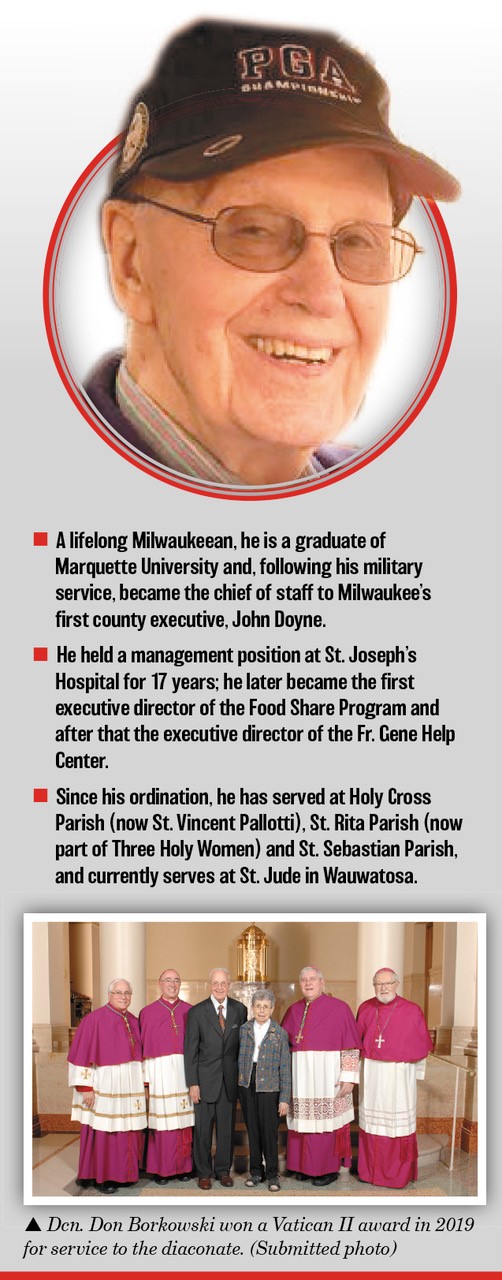Give Us Shepherds
You’ve done so many different things in your life and in your career. What has been the most memorable job or position you have had?
Wherever I’ve been and whatever I’ve done it seems to be a step, so to speak, in learning. Everywhere I’ve been, I’ve learned something, and I can take that on to the next project. I think almost every day itself is somewhat memorable, because I know a lot of things are just routine, mundane, but there are many times somebody will stop and ask a question or something, or I get a phone call, and there I go.
You’re a veteran of the Korean War, serving in the Medical Corps. What was that like?
We had a traumatic occurrence in our family when a cousin of mine was shot accidentally, and that put a healthy respect in me for firearms. So when I got into the service I said, “I’ll do anything but shoot.” So they said, “Well, how about shooting needles?” No. I’m only kidding, but I actually did do a lot of inoculations. I served in a medical detachment for two years.
Did that spur your interest in healthcare?
I actually thought that maybe I might want to go to medical school, but when I looked at my future — I had two years at Marquette under my belt and I looked and thought, “Oh, it’ll only take me two years to finish, but it’ll take me 10 years to finish medical training.” I took the easier road.
How did you begin to consider the permanent diaconate?
I was the president of our Holy Name Society, and a Marquette professor came to talk to us about Vatican II. This must have been in about 1962. I had no idea about Vatican II at the time. I learned a lot, but it was overwhelming. He came with so many volumes. I thought, “Oh my gosh, is this what’s going on?” As I think back, I think that’s probably the beginning. One of the offshoots of Vatican II was the reinstitution of the diaconate program, and the pieces of my jumble started to come together at that time. Being so involved in our parish, I could see the segue into the diaconate. I became an Extraordinary Minister of Holy Communion and brought the Eucharist to Catholic patients at the hospital where I worked, and one day out of the clear blue sky, I got an interhospital mailer describing a meeting the archdiocese was having about the diaconate. I said, “Well, let me experiment and see what this is all about.”
You’ve been retired for about a year now — what do you do in your free time?
I love the daily word jumble in the paper. I’m getting pretty good at it. And I’ve been jogging longer than it was fashionable — since the 50s at least. I’ve even had parishioners stop me and comment on something I said in my homily.
What is it like for your family, to have a deacon as a father or grandfather?
A lot of times if people have a question about the Church, I’m the one they’ll ask. And if I don’t know the answer, I always want to look it up. That’s what I love about the Church — you can find the answer to any question. You can pick up Scripture almost any time and put yourself into the situation at hand. When I read an epistle from Paul, I can see what problem he’s in right away, and think — “Oh, yeah, we’ve had that here.”
You and Antoinette are in your 63rd year of marriage — how did you meet?
It was a grade school classmate of mine who introduced me to her. It was at one of the neighborhood functions, and it was just one of those things. We’ve been together ever since.
You have six grandkids. If you could give your grandkids one piece of advice, what would it be?
Life has consequences. Every choice you make has consequences; so think first before you do anything.

